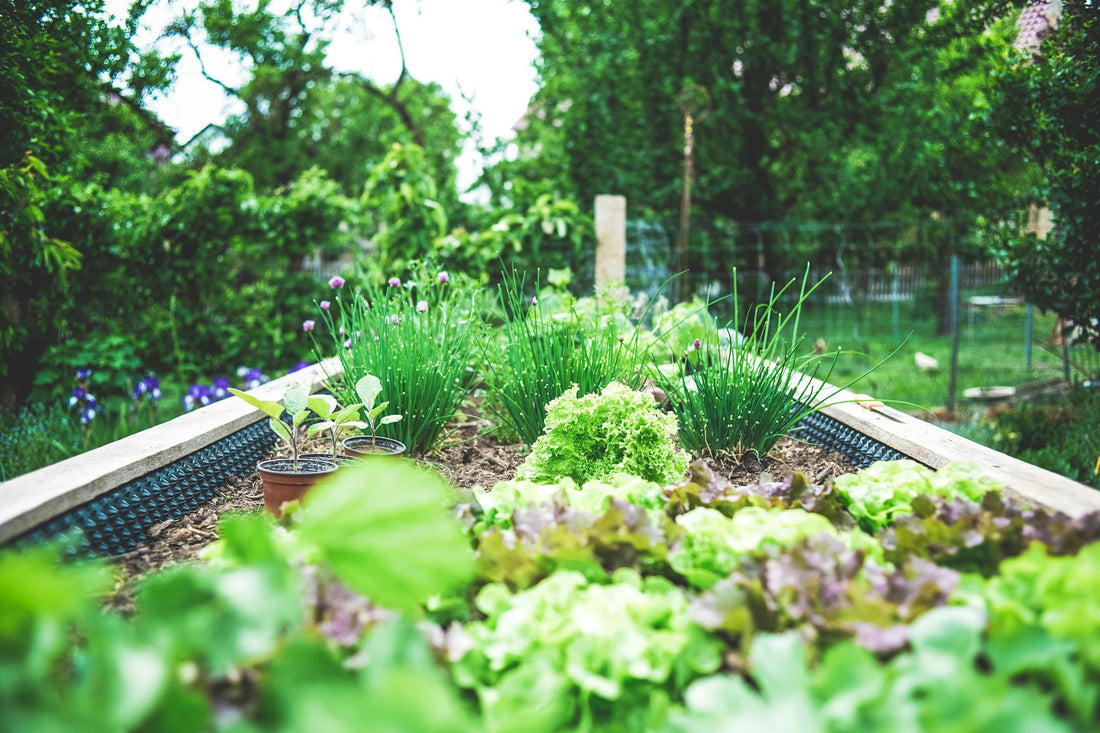Dig this — just because it’s growing doesn’t mean it’s green. With spring in the air, gardeners across the northern hemisphere are gearing up for the planting season. But before you dive into this year’s backyard projects — whether it’s going trendy with pink and blue hydrangeas or tackling tricky topiaries — consider how you can lower your carbon footprint and give the planet a genuinely green thumbs-up. By composting and maintaining a fruitful backyard free of toxins and chemicals, you can contribute to a happier, healthier environment with these sustainable summer gardening tips.
Prep Your Compost
If you practice sustainable living, compost should be part of your daily routine. Besides, composting is an excellent way to cut unnecessary waste and create nutrient-rich soil for your garden to thrive all season long.
To get your compost ready for the spring and summer gardening, start by turning over your compost pile from winter to aerate it and promote decomposition. Add any kitchen scraps, yard waste, and other organic materials to the pile, aiming to balance green materials (like fruit and vegetable scraps) with brown materials (like leaves and cardboard) as this helps to avoid pests and rodents.
Throughout the coming seasons, you'll want to keep your compost pile moist but not too soggy and turn it regularly to ensure proper decomposition. If the pile has a bad odor, add more brown materials to balance it out.
To make composting a daily habit in your household, keep a container in your kitchen to hold any of the day’s food scraps and dump it into your pile every evening. This will help prevent the temptation to just throw it in the trash, helping to lower methane levels in landfills and your overall carbon emissions in the process.
Use Compost in Your Garden
Once you have a dark, crumbly texture with a rich and earthy smell, your compost is ready to join the garden. Shovel out the part of your compost pile that is ready, leaving the rest to decompose, and spread it over a layer over your garden bed.
From there, you can gently work the compost into the soil with a garden fork or trowel to give your plants some extra love. That’s because compost adds nutrients to the soil, increases water retention, promotes healthy plant growth, and helps fend off pests.
Plus, by using compost in your garden, you can reduce the need for chemical fertilizers and support a more sustainable growing environment. Easily one of the best sustainable gardening tips is incorporating compost into your soil.

Practice Water Conservation
Conserving water is a vital part of sustainable gardening, especially in regions prone to drought. To do this for your summer gardening, you can install a rain barrel to collect rainwater for watering your garden or invest in a drip irrigation system to deliver water directly to the roots of your plants.
Adding mulch around your plants can also help retain moisture in the soil and reduce the need for frequent watering. These green gardening practices can quickly help you minimize water waste and conserve this essential resource.
Prioritize Native Plants in Your Sustainable Garden
When selecting plants and seeds for your garden, seek out native species well-suited to your local climate and soil conditions. Native plants require less water, fertilizer, and pesticides than non-native species. Beyond that, native plants also provide habitat and food for local wildlife, helping to support biodiversity in your backyard’s ecosystem.
Incorporate Integrated Pest Management Strategies
Instead of reaching for chemical pesticides at the first sign of pests like aphids or vine borers in your garden, give integrated pest management (IPM) a try. IPM is an environmentally sensitive technique that involves using cultural, mechanical, and biological methods to control pests while minimizing chemical pesticides.
This may include techniques such as hand-picking pests, using insecticidal soaps or oils, and attracting beneficial insects to your garden. Learning these strategies will make you a more efficient gardener and help you lower your carbon emissions when it comes to maintaining a home garden.

Support Pollinators
Pollinators like bees, butterflies, and hummingbirds play a crucial role in the garden ecosystem by pollinating flowers and ensuring the reproduction of many fruit and vegetable crops — not to mention how important they are to the planet in general.
Summer gardening is the perfect time to support pollinators. So, go ahead and plant a variety of flowering plants and wildflowers that provide nectar and pollen throughout the growing season.
If you’d like to take it a step further, you can also provide shelter and nesting sites for bees and other beneficial insects. Construct or purchase bee houses or utilize rock walls and/or dead wood to provide a safe place for pollinators.
Save Seeds
If you want to reduce your dependence on commercial seeds, save seeds from your healthiest, favorite plants instead. This will help promote adaptability and resilience in your garden. Once they are collected, store them in airtight containers, preferably somewhere cool and dry.
With these sustainable gardening tips, you can cultivate a truly green outdoor space that thrives throughout the summer while minimizing your environmental impact. By composting kitchen scraps, conserving water, and supporting pollinators, you can create a vibrant and biodiverse garden ecosystem that benefits both people and the planet. Happy summer gardening!

